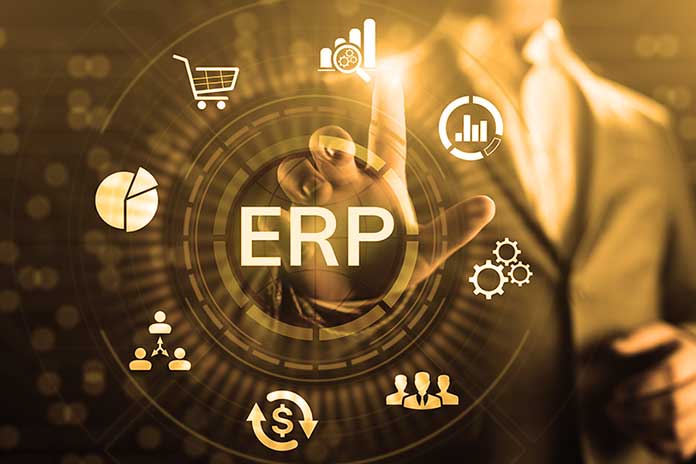Table of Contents
Operation Of ERP
The ERP is a management software that centralizes a company’s data. This means that any information changed in one module is reflected in the other modules. The entire database is then updated, and the impact of each modification is taken into account.
To make this concept more concrete, let’s see an example. If a salesperson adds a sale in the ERP, the stock will be automatically adjusted (minus one product), then the sales journal and accounting will also be automatically updated.
The income statement will then increase in real-time. You no longer have to manually enter all the data as soon as an update is required! This prevents you from wasting time, duplicating data, or even losing data. You also eliminate the risk of data tampering due to human error.
Installation Of ERP
Integrating building ERP software begins with the purchase of a license. The cost then depends on the ERP software you have chosen. Professionals in the sector must indeed carry out SAAS (Software As A Service) to adapt the ERP to your company.
The information system must then be updated, and the entire ecosystem of tools is tested. Once the calibration is done, you can then use the ERP, and you generally benefit from medium-term customer support to guide you and resolve any problems that may arise.
Therefore, its implementation is a little technical, but the tool is proving to be very efficient, and the cost/benefit ratio is in favor of construction companies.
ERP for construction companies
To choose the ERP software adapted to your needs and your specificities, you must consider the integrated solutions (implementation, documentation, customer support, etc.) and the ergonomics of the software. Here is a list of ERP software specializing in a building that might interest you:
- Divalto.com: this ERP takes care of the quotation and costing, the allocation of resources, the calculation of profitability, the management of interventions, the follow-up of the schedule and the sites, and a global vision of the ground. Rich in features and flexibility, it can be easily adapted to suit your needs.
- Sylob.com: Sylob offers two ERPs, one for SMEs or start-ups at the start of the expansion and the other for construction companies that are already more developed. You benefit from functionalities such as production management, stock management, quality monitoring, sales management, and Business Intelligence. All with a flexible and easy-to-use tool.
- Cegid: Cegid’s ERP supports large companies such as tiny businesses in managing their accounting and invoicing, developing their business, monitoring payroll and finance, managing production and operations, as well as as a management functionality for retail activity. Very complete, the Cegid ERP ensures the security of your data and simplifies all your daily tasks.
- SAP: our latest proposal for ERP site management software is from SAP. SAP offers all the functionalities of an ERP software package with the bonus of respecting the planet and considering current environmental issues. Modern SAP uses the latest IT discoveries and new technologies to offer innovative solutions.
Conclusion on ERP
The ERP is a project management tool, monitoring finances, and high-performance planning in industry or building areas. They centralize data, lower costs and become more productive. Are you so convinced by the use of ERP software for your construction sites?


